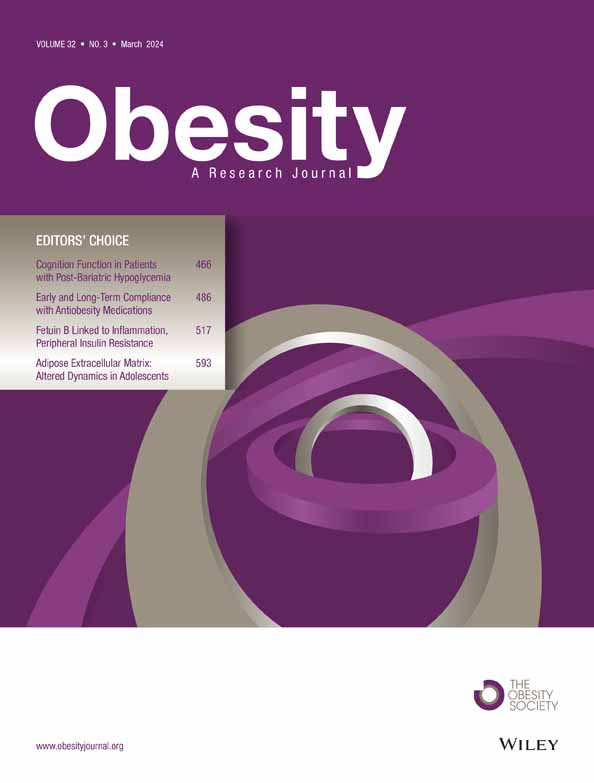Cognition in patients with post-bariatric hypoglycemia
Alexa Puleio and Amanda Sheehan contributed equally to this study.
Abstract
Objective
Bariatric surgery, a highly effective treatment for obesity and associated comorbidities, may improve cognition and brain volume in parallel with cardiometabolic function. However, some post-bariatric individuals develop post-bariatric hypoglycemia (PBH), which can be frequent and severe. The impact of recurrent hypoglycemia on cognition in PBH is unknown. The objective of this study was to determine whether individuals with PBH display reduced cognitive function compared with postsurgical counterparts without hypoglycemia.
Methods
Fourteen adults with a history of Roux-en-Y gastric bypass with hypoglycemia (PBH+, n = 7) or without PBH (PBH−, n = 7) completed assessments of memory, executive function, attention, and psychomotor speed.
Results
PBH+ individuals displayed significantly decreased performance in category fluency (p < 0.01), category switching (p < 0.01), and category switching accuracy (p < 0.01), compared with PBH− individuals. Performance in the first (p = 0.03) and third intervals (p = 0.045) of verbal fluency was significantly lower in PBH+ individuals versus PBH− individuals. All other assessments did not differ.
Conclusions
PBH+ individuals may be at greater risk for cognitive impairment compared with PBH− individuals, as suggested by impaired semantic processing and cognitive flexibility, as well as greater difficulty initiating and sustaining word retrieval.
CONFLICT OF INTEREST STATEMENT
Mary Elizabeth Patti reports personal consulting fees from AstraZeneca, Fractyl, Hanmi Pharmaceutical, MBX Biosciences, Poxel, and Eiger Pharmaceuticals and grants from the Chan-Zuckerberg Initiative, Dexcom, and Helmsley Trust, outside the submitted work. The other authors declared no conflict of interest.





